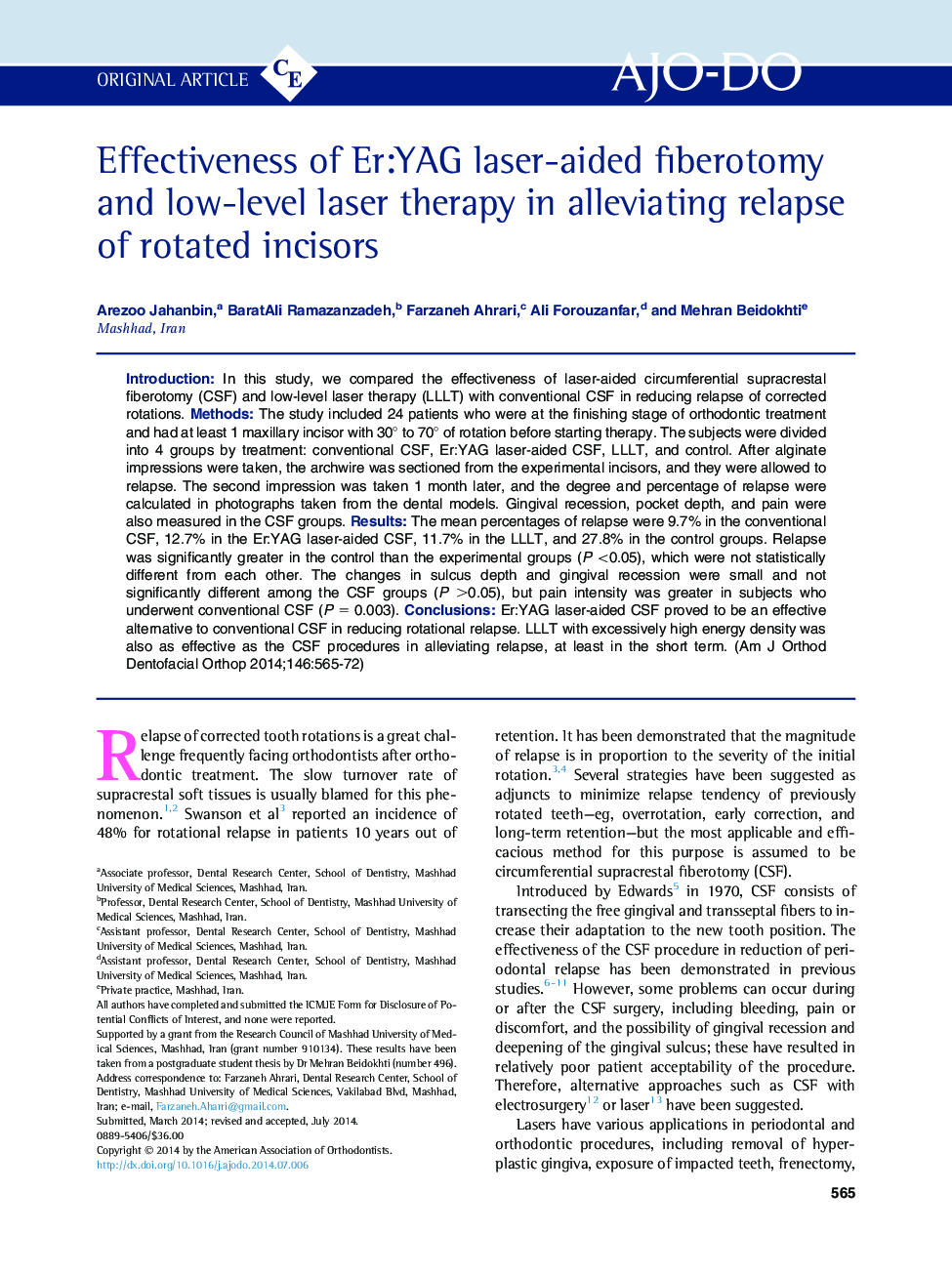| Article ID | Journal | Published Year | Pages | File Type |
|---|---|---|---|---|
| 3116237 | American Journal of Orthodontics and Dentofacial Orthopedics | 2014 | 8 Pages |
•Laser-aided fiberotomy is effective in diminishing relapse of rotations.•Low-level laser therapy with high irradiation dosage alleviates rotational relapse in the short term.•Pocket depth changes and gingival recession are similar in conventional and laser-aided supracrestal fiberotomy groups.
IntroductionIn this study, we compared the effectiveness of laser-aided circumferential supracrestal fiberotomy (CSF) and low-level laser therapy (LLLT) with conventional CSF in reducing relapse of corrected rotations.MethodsThe study included 24 patients who were at the finishing stage of orthodontic treatment and had at least 1 maxillary incisor with 30° to 70° of rotation before starting therapy. The subjects were divided into 4 groups by treatment: conventional CSF, Er:YAG laser-aided CSF, LLLT, and control. After alginate impressions were taken, the archwire was sectioned from the experimental incisors, and they were allowed to relapse. The second impression was taken 1 month later, and the degree and percentage of relapse were calculated in photographs taken from the dental models. Gingival recession, pocket depth, and pain were also measured in the CSF groups.ResultsThe mean percentages of relapse were 9.7% in the conventional CSF, 12.7% in the Er:YAG laser-aided CSF, 11.7% in the LLLT, and 27.8% in the control groups. Relapse was significantly greater in the control than the experimental groups (P <0.05), which were not statistically different from each other. The changes in sulcus depth and gingival recession were small and not significantly different among the CSF groups (P >0.05), but pain intensity was greater in subjects who underwent conventional CSF (P = 0.003).ConclusionsEr:YAG laser-aided CSF proved to be an effective alternative to conventional CSF in reducing rotational relapse. LLLT with excessively high energy density was also as effective as the CSF procedures in alleviating relapse, at least in the short term.
